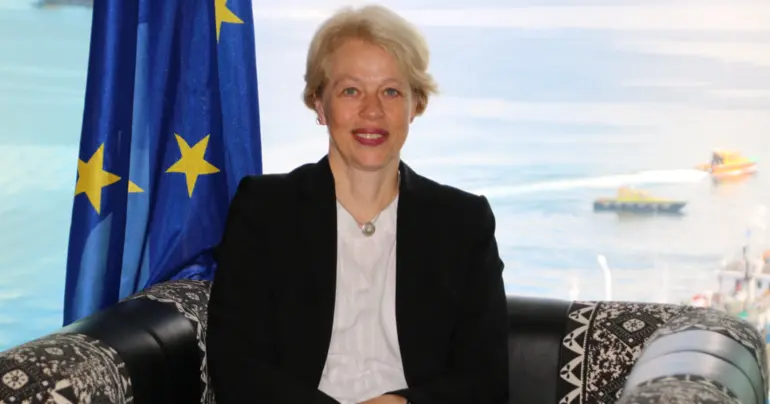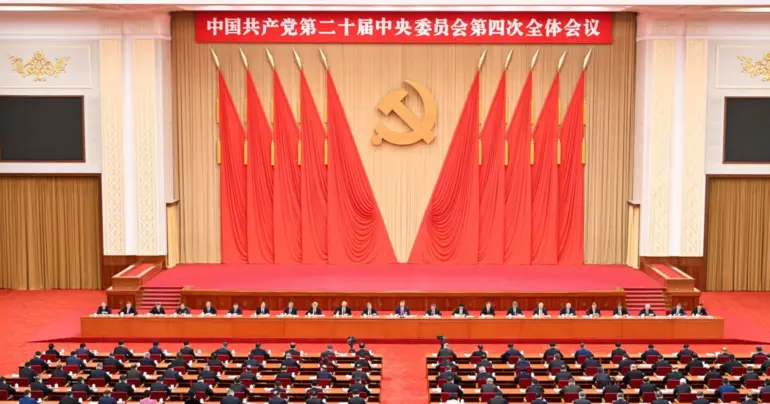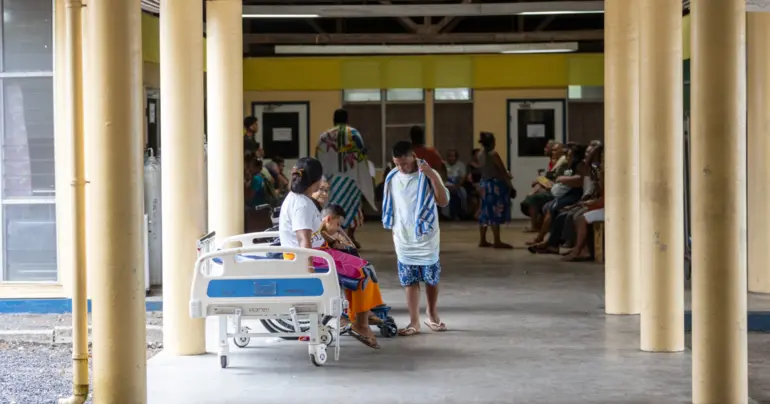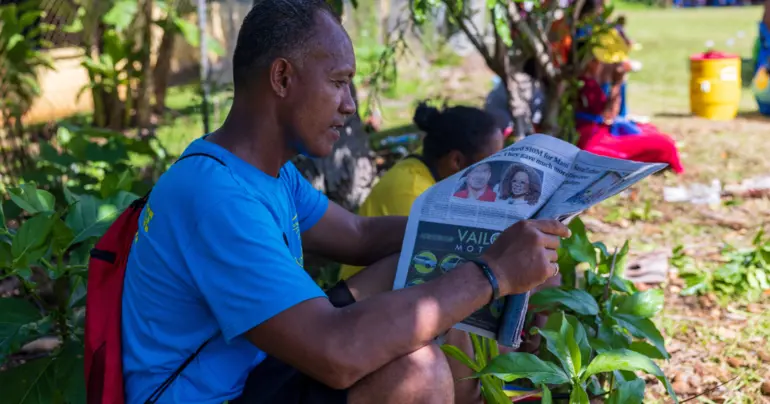Decent work towards 2050
This week, representatives of governments, employers and workers have gathered in Suva to discuss the challenges and opportunities in advancing decent work in the Pacific.
The stakes have never been higher.
We find ourselves at a critical juncture. The Pacific region is undergoing transformative change driven by economic shifts, geostrategic competition, advances in technology and environmental pressures.
Despite this, ensuring decent work for all remains our goal. It is a goal that resonates deeply with both ILO’s Commitment to Social Justice and the Pacific Island Forum’s 2050 Strategy for the Blue Pacific Continent. This sets out Pacific leaders’ vision for a resilient Pacific region, one based on peace, harmony, security, social inclusion and prosperity where all Pacific people can lead free, healthy and productive lives.
To meet these goals, we must address many challenges facing Pacific Island nations.
Pacific Island nations are disproportionately affected by the effects of climate change, including rising sea levels and frequently recurring extreme weather events. These not only disrupt livelihoods but exacerbate inequalities. It is imperative that we integrate climate adaptation, disaster risk reduction and climate-resilient jobs into labour policies and practices, fostering a just transition to a greener future.
A reliance on a few key economic sectors such as agriculture, fisheries and tourism highlights the vulnerability of labour markets in the region to shocks such as the COVID pandemic and any global economic downturn. Private sector growth, innovation (especially in the green and digital economy), skills training, entrepreneurship and formalization will help unlock the full potential of key sectors.
The development of a regional private sector strategy to be aligned to the Pacific Roadmap for Economic Development will help identify potential solutions to these ongoing impediments. A focus on growth areas such as the care economy can also help create decent and dignified employment opportunities for all, including women, youth, persons with disabilities and other marginalized groups. Stronger labour standards in line with international conventions would also help protect the rights and treatment of workers.
While remoteness and diseconomies of scale can hamper economic development, the region’s rich cultural heritage and traditional way of living can be harnessed to promote community-based enterprises, eco- and cultural tourism. They can also support sustainable resource management and conservation, helping create employment opportunities while preserving cultural identities and environmental resources for future generations.
By investing in education and skills development, expanding access to finance and resources, and eliminating gender-based violence, discrimination and harassment, we can create a work environment that women can fully participate in, and benefit from. The ILO's Violence and Harassment Convention offers new opportunities for both tackling persistent gender-based violence across the Pacific but also increasing women's economic empowerment. In this region, Australia, Fiji and Papua New Guinea have ratified the convention. We encourage others to follow their lead.
The COVID pandemic underscored the importance of social protection. In the Pacific, where informal employment is prevalent, the need for robust social protection systems is particularly acute. By expanding access to healthcare, unemployment benefits and income support, we can mitigate the impacts of crises and ensure that no one is left behind.
We must also seek to address the challenges of labour mobility. Migration for work can provide many benefits to countries of destination and origin, migrant workers and their families. Yet for those who choose to migrate for work, stronger governance frameworks and safeguards are required to ensure that migration experiences are positive ones. Meanwhile, better skills, more opportunities and higher wages would encourage Pacific islanders to remain in their national labour markets.
The 2050 Strategy for the Blue Pacific Continent provides a visionary roadmap for harnessing the region's potential and addressing many of these shared challenges through collective action and cooperation. By aligning the goals of ILO’s Decent Work agenda with the objectives of the Blue Pacific Continent, we can forge synergies and amplify impact.
In this context, the principles of social dialogue and tripartism are invaluable. By bringing together governments, employers, and workers' organizations, we can foster consensus-building, promote collective bargaining, and ensure that policies, regulations and activities are grounded in the needs and aspirations of all stakeholders.
The upcoming signing of a cooperation agreement between ILO and PIFS will provide a platform to address and focus on regional approaches and support the timely and effective implementation of the 2050 Strategy for the Blue Pacific Continent.
By working together, the ILO and the Pacific Islands Forum can support the region's journey towards social justice, equity and human-centered development. Together, we can build a future where decent work is not just a goal, but a reality for all.
Chihoko Asada-Miyakawa is the International Labour Organization’s Assistant Director-General and Regional Director for Asia and the Pacific. Henry Puna is Secretary General of the Pacific Islands Forum.










